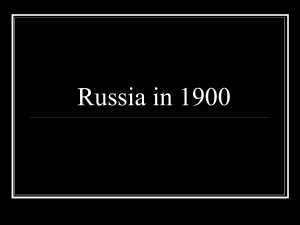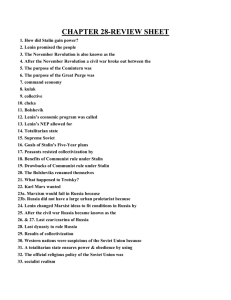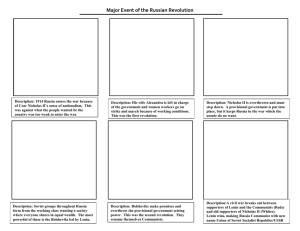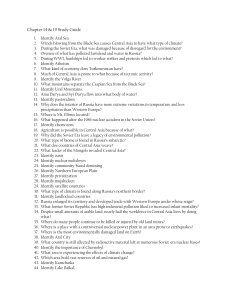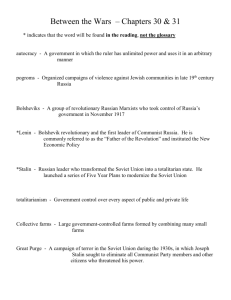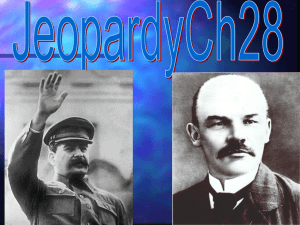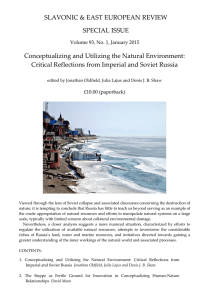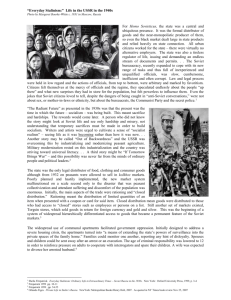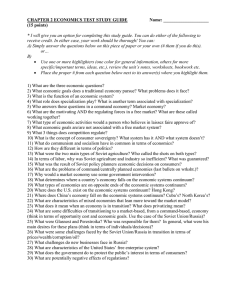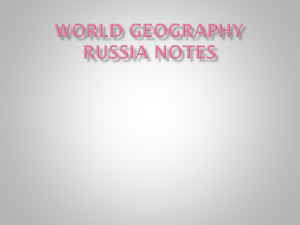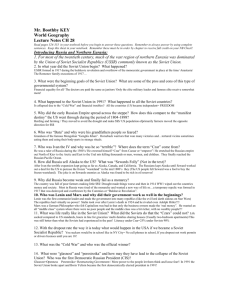Chapter 20 Section 2
advertisement
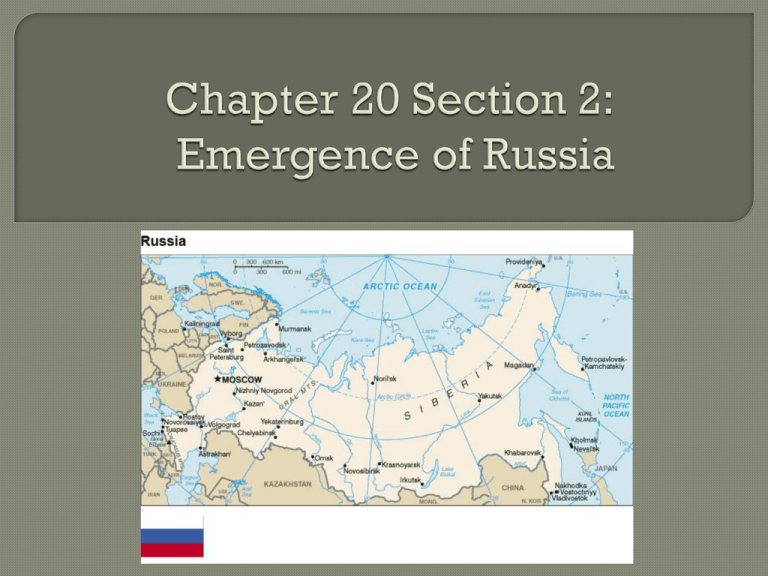
Series of monarchs called czars• Comes from a variant of the title “Caesar” (Tsar); ruled as complete absolutists • In 1613 Romanovs began their rule and would remain on the throne for 300 years Peter the Great- assumes the throne in 1694 and attempts to Westernize • Creates the first Navy for Russia and modernizes the army • Implements new styles of dress and appearance to look more European Catherine the Great (late 1700s) expanded Russian control farther to west into Poland and Ukraine • Catherine was heavily influenced by Enlightenment leading to her establishment of an education system in Russia 1812 Napoleon Bonaparte invaded Russia w/ 600,000 men and laid siege to Moscow, however Russia’s bitter winter and his depleting supply lines forced him to leave only 30,000 made it back to France a) Social structurefeudalism still remained where servants were tied to the land and their owners in everyway • • England freed its last serf in 1574; Russia did not abolish serfdom until 1861 23 million serfs in Russia when it was abolished compared to 4 million slaves in the United States Increase in dissatisfaction w/ czars, defeats in WWI and severe food shortages caused the czar to abdicate - give up his powers • Nicholas II: wanted to retain his powers, Rasputin, “Bloody Sunday” Revolution of 1917 - revolutionaries inspired by the socialist ideas of Karl Marx persuade rioters from a factory, as well as, the military to join them • A Provisional Government assumes authority, but are then overthrown by the Bolsheviks who are led by Vladimir Lenin • Lenin issues the murder of the Romanov family Union of Soviet Socialist Republics (USSR) composed of republics and each republic had its own soviet – governing council Soviet Union had a command economy – controlled what was produced and where it would be sold • Famine strikes when grain quotas are too much to fill (3-4 million people starve) Life was hard under communist regime – Joseph Stalin assumes control after Lenin • Fear tactics used to keep citizens faithful to the party; purges all over the union to rid those not committed to Stalin • In 1937, 71 of the 85 commanding officers of the military are killed or sent to Gulags Agriculture – land is organized into state farms where workers collectively work together and share the land International Conflicts- June 1941 German troops attacked Soviet Union • Even though the Soviet Union had an initial pact with Nazi Germany, Hitler still planned a three pronged attack (Leningrad, Moscow, Stalingrad) • Harsh winter and the Red Army going on the offensive at Stalingrad lead to their first victory of the war; they continue on the offensive all the way into Berlin Cold War – period after WWII • The Soviet Union establishes their “sphere of influence” over much of Western Europe including East Germany; created an east vs. west (capitalists vs. communists) • Competed for power w/ U.S.- nearly came to nuclear war during 1960s, and 1970s End of Communist Rule • 1980s new leader, Mikhail Gorbachev began radical reforms- policy of • glasnost- “openess” wanted to hear the people and report to them issues facing the union, although Chernobyl goes for two weeks without being reported by the government • Perestroika- the gradual change from the command system to private ownership • 1991 Russia participated in first democratic election • Elected Boris Yeltsin as president • In 2000 Vladimir Putin became president
